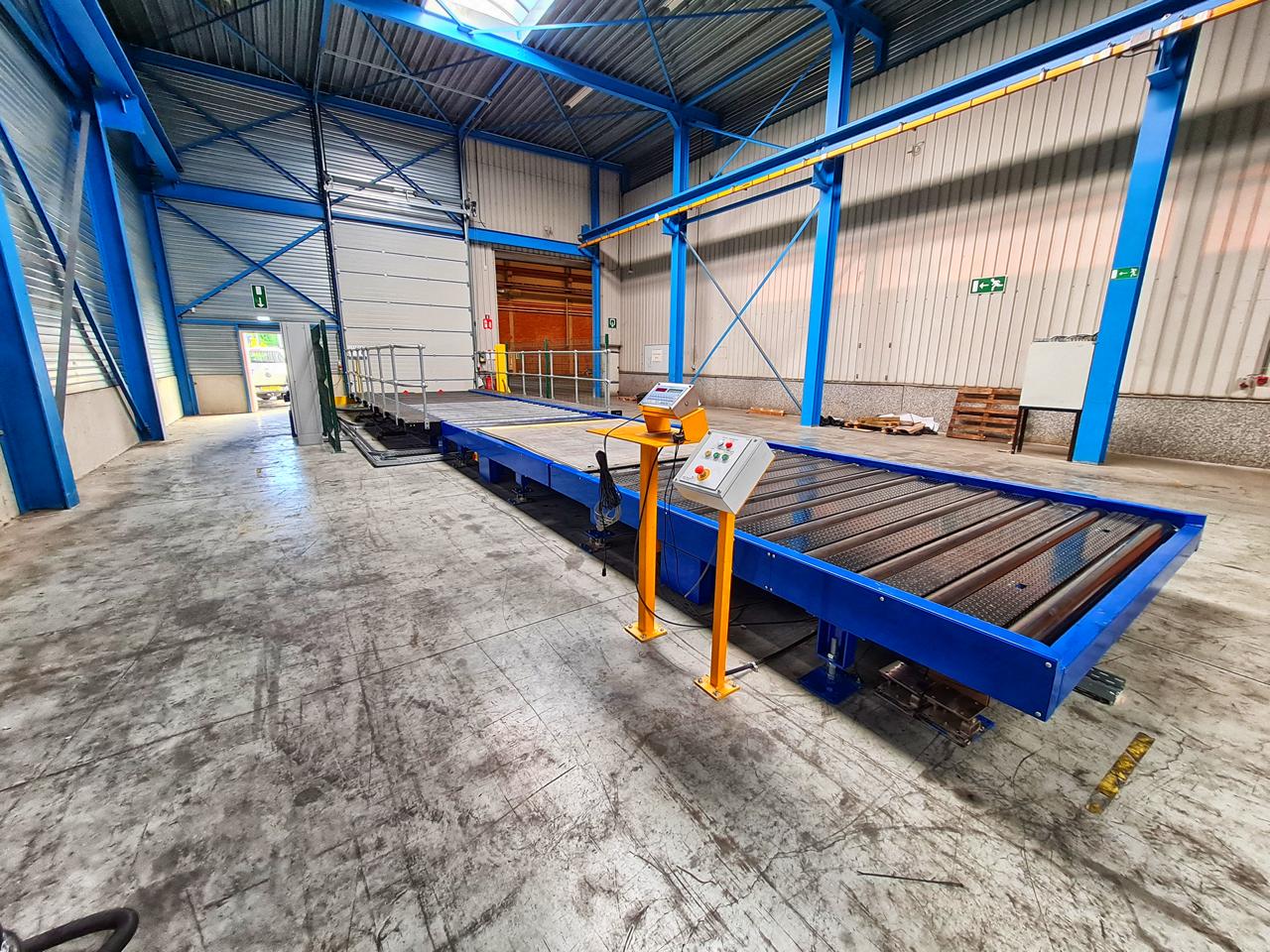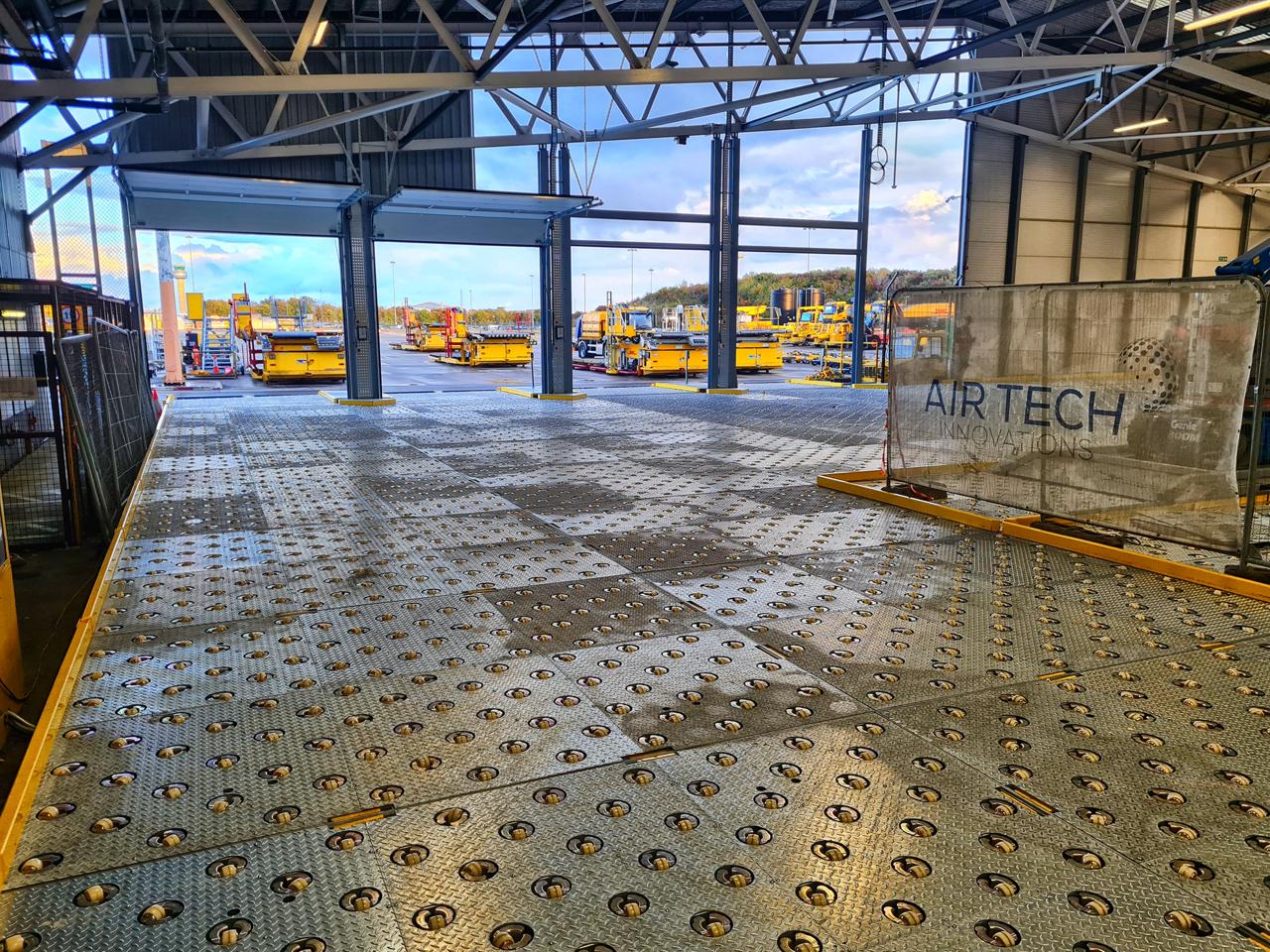Unlocking customer experience is the critical role of your supply chain, writes Roy Arguelles, Senior Vice President of Supply Chain Sales, QAD.
In today’s marketplace, where products and services proliferate and competition intensifies, businesses are realizing that they need to offer more than just commodities to thrive. Enter the Experience Economy – a paradigm shift where companies are no longer just selling goods or services but crafting memorable experiences for their customers. This emerging economic model emphasizes the significance of immersive, personalized encounters that leave a lasting impression on consumers.
For consumers today, loyalty hangs by a fragile thread. With a single disappointing encounter, customers readily shift allegiance. This fickleness stems from the plethora of options available at their fingertips, facilitated by the digital age. Whether it’s subpar service, a flawed product, or a lackluster interaction, consumers swiftly abandon brands, seeking refuge elsewhere. In this cutthroat environment, businesses must recognize that each interaction is a make-or-break moment, where the slightest misstep risks losing not just a transaction but a customer’s trust and allegiance to competitors.
At the heart of the Experience Economy lies the recognition that in an era inundated with choices, customers seek more than just functional benefits. They crave emotional connections, meaningful interactions, and memorable moments. Businesses that prioritize delivering exceptional customer experiences gain a significant competitive edge. These experiences not only create customer loyalty but also drive revenue growth, brand differentiation, and sustainable success in the long term.
Delivering great experiences to end users
Exceptional experiences forge deep connections, creating loyalty, advocacy, and repeat business. Satisfied customers become brand ambassadors, spreading positive word-of-mouth and attracting new clientele. Investing in exemplary experiences is no longer a choice–it’s an imperative for survival and success, but how do companies deliver great experiences to their end users?
While one traditional key principle in delivering great end user experiences is getting the right product to the right customer at the right time, this doesn’t encompass the story in its entirety as decisions are not made in a vacuum. Companies must also consider cost implications, accurate demand forecasting, trend analysis, process automation, and logistics considerations.
Cost implications play a pivotal role in delivering exceptional experiences for end-users. By optimizing expenses, businesses can allocate resources to enhance product quality and service delivery, ensuring customer satisfaction. Accurate demand forecasting and trend analysis enable companies to anticipate customer needs, ensuring products are available when and where they’re wanted. Process automation streamlines operations, reducing errors and inefficiencies, thus improving reliability and consistency in customer interactions. Logistic considerations ensure timely delivery, minimizing delays and enhancing convenience for end-users. Together, these factors create a seamless and satisfying experience.
Another way to ensure great end-user experience is by improving customer interactions across multiple platforms—website, phone, chat, email, SMS, or social media—is essential for delivering exceptional experiences. A user-friendly website offers intuitive navigation and personalized content, enhancing engagement and satisfaction. Responsive phone support provides immediate assistance, resolving queries efficiently and courteously. Live chat offers real-time assistance, resulting in instant rapport and problem resolution. Email and SMS communications deliver timely updates and promotions, keeping customers informed and engaged. Social media platforms enable authentic engagement, allowing businesses to interact directly with customers, address concerns, and showcase brand personality. By optimizing each touchpoint, companies cultivate meaningful connections, driving loyalty and advocacy among end-users.
While ensuring fantastic customer interactions is valid, it is important to note that roughly 85 percent of the issues that customer service agents deal with are related to not having the right product at the right time in the right quantity with complete documentation. Not receiving a child’s birthday present on time or not receiving paper instructions after purchasing a piece of furniture are good examples of customer frustrations. No matter how excellent customer service interactions are, issues like these deeply impact experience and ultimately brand loyalty.
Why do companies struggle to deliver great experiences?
First, siloed views within organizations can severely hinder the customer experience. When departments operate in isolation, critical information becomes fragmented or overlooked, leading to inconsistent messaging, disjointed processes, and frustrated customers. Silos prevent a holistic understanding of customer needs and preferences, resulting in missed opportunities for personalized interactions and tailored solutions. Also, disjointed systems often lead to inefficiencies, delays, and errors, further eroding trust and satisfaction. To deliver seamless experiences, businesses must break down silos, fostering cross-departmental collaboration and data sharing. Only through a unified approach can organizations truly prioritize and enhance the end-to-end customer journey.
Secondly, identifying root cause inefficiencies presents a formidable challenge for businesses. Symptoms of operational flaws often manifest in various departments or processes, making it challenging to pinpoint the underlying issues. Additionally, interconnected systems and dependencies further complicate the analysis, obscuring the true source of inefficiency. Without a comprehensive understanding of the root causes, organizations risk implementing superficial solutions that fail to address the underlying problems. Overcoming this hurdle demands meticulous data analysis, cross-functional collaboration, and a willingness to challenge conventional wisdom.
Lastly, specifically for manufacturers, shop floor productivity is lagging. Manufacturing shop floor productivity suffers as talent retention dwindles and fails to appeal to the younger workforce. Aging demographics and outdated perceptions render manufacturing less attractive to younger generations. The absence of modernization and technological integration exacerbates this issue, further deterring potential recruits. Additionally, inadequate training and career development paths hinder employee engagement and satisfaction. To revitalize productivity, manufacturers must prioritize talent retention through competitive benefits, upskilling initiatives, and embracing technological innovations. Cultivating a dynamic work environment that values diversity, innovation, and professional growth is pivotal in attracting and retaining the next generation of skilled workers, revitalizing shop floor productivity for sustained success.
Why are great customer experiences important?
A significant key performance indicator (KPI) around customer experience is the Net Promoter Score (NPS). NPS serves as a critical metric gauging customer loyalty and satisfaction. Derived from responses to a simple question—”How likely are you to recommend our product/service to a friend or colleague?”—it categorizes customers into promoters, passives, or detractors. Research consistently indicates a strong correlation between high NPS scores and revenue growth. Promoters, enthusiastic advocates of a brand, not only drive customer acquisition through word-of-mouth referrals but also exhibit higher purchase frequency and lifetime value. By focusing efforts on elevating NPS, businesses can cultivate a loyal customer base, stimulate organic growth, and ultimately, bolster their bottom line.
Supply chain management profoundly influences Net Promoter Score (NPS) by directly impacting key customer touch points. Delays in delivery, whether due to logistical issues or inventory shortages, lead to dissatisfaction and diminished trust. Product availability issues frustrate customers, potentially driving them to competitors. Inadequate quality control results in defective products, tarnishing brand reputation and loyalty. Moreover, cost increases passed onto consumers can provoke negative sentiment. By prioritizing efficiency, transparency, and reliability throughout the supply chain, businesses can mitigate these risks, ensuring consistent and positive experiences.
Find a partner that enhances customer experience
It is crucial to find a partner that understands that digital transformation alone is not enough. Unlike point solution vendors who solve isolated problems, prioritize a partner that focuses on three main areas: people, processes, and systems.
A good partner will begin its approach by understanding what is actually happening with mission-critical processes in the supply chain like inbound and outbound logistics, supplier management, customer service, help desk, and financial processes. Understanding these root causes helps identify opportunities for improvement and automation. Analyzing data and feedback reveals pain points, bottlenecks, and inefficiencies within each process. Utilizing process mapping and performance metrics helps pinpoint areas ripe for enhancement. Automation technologies, like AI and machine learning, streamline repetitive tasks, reducing errors and enhancing efficiency. By continuously assessing and optimizing these processes, businesses can improve responsiveness, reduce costs, and enhance overall supply chain performance, ultimately driving customer satisfaction and competitive advantage.
In short, the Experience Economy underscores the critical shift towards prioritizing immersive, memorable customer experiences as a key differentiator for businesses. Embracing this paradigm requires innovative solutions that enhance operational efficiency, customer engagement, and overall competitiveness. Partnering with a company that offers an Industrial Transformation Platform presents an invaluable opportunity to boost operational excellence and workforce productivity. Such platforms integrate advanced technologies, analytics, and automation to optimize processes across the entire supply chain, empowering businesses to deliver exceptional experiences consistently. By leveraging these platforms, companies can adapt to evolving consumer demands, drive sustainable growth, and thrive in the dynamic landscape of the Experience Economy, securing their position as industry leaders.
read more
Driving brand loyalty with sustainable supply chains








